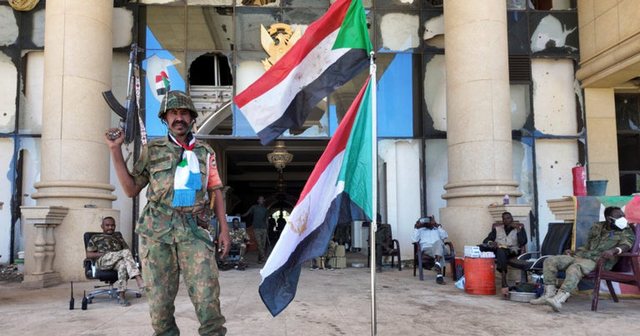
Sudanese paramilitary forces accuse army of airstrikes in North Darfur


The paramilitary Rapid Support Forces (RSF) accused the Sudanese Armed Forces (SAF) of bombing the Tora market in North Darfur state, saying the attack caused hundreds of casualties.
The independent Sudan Tribune news outlet reported that more than 100 people were killed and dozens injured in heavy airstrikes in Tora, north of El Fasher, the capital of North Darfur. The Sudanese military has not commented on the claim.
UN spokesman Stephane Dujarric said the UN was "deeply alarmed by the continued attacks on civilians," citing Monday's airstrike and an RSF artillery attack on a mosque in Khartoum on Sunday.
Separately, the SAF on Tuesday released a map for the first time outlining its areas of control and territory held by the RSF, as fighting between the two sides continues.
"The Sudanese Armed Forces and other regular forces, supported by the Sudanese people, continue their operations to eliminate the militias, aiming to end the rebellion and restore security and stability," the SAF said in a statement on its official Facebook page.
The map marked in green the areas under full SAF control, including the Northern States, the Nile River, the Red Sea, Kassala, Gedaref, Blue Nile, Gezira and Sinnar. The areas controlled by the RSF, including West, South and East Darfur, were marked in red.
Since early 2024, the army has made territorial gains, particularly in Omdurman, north of Khartoum, retaking Greater Omdurman and shifting the balance of power in its favor. The army escalated operations in the capital in late September with a ground offensive supported by airstrikes, regaining parts of central Khartoum and western Bahri.
In early October, the army recaptured most towns in Sinnar state. On January 11, it captured Wad Madani, the capital of Gezira state in central Sudan, although several small towns remain under RSF control.
The conflict, approaching the two-year mark, has killed tens of thousands, displaced more than 15 million and caused one of the world's worst hunger and displacement crises. With Sudan's healthcare system collapsing, casualty figures remain difficult to verify.

Edi Rama, një Caligula me smartphone në dorë!
ideas
top
Alfa recipes
TRENDING 
services
- POLICE129
- STREET POLICE126
- AMBULANCE112
- FIREFIGHTER128




























